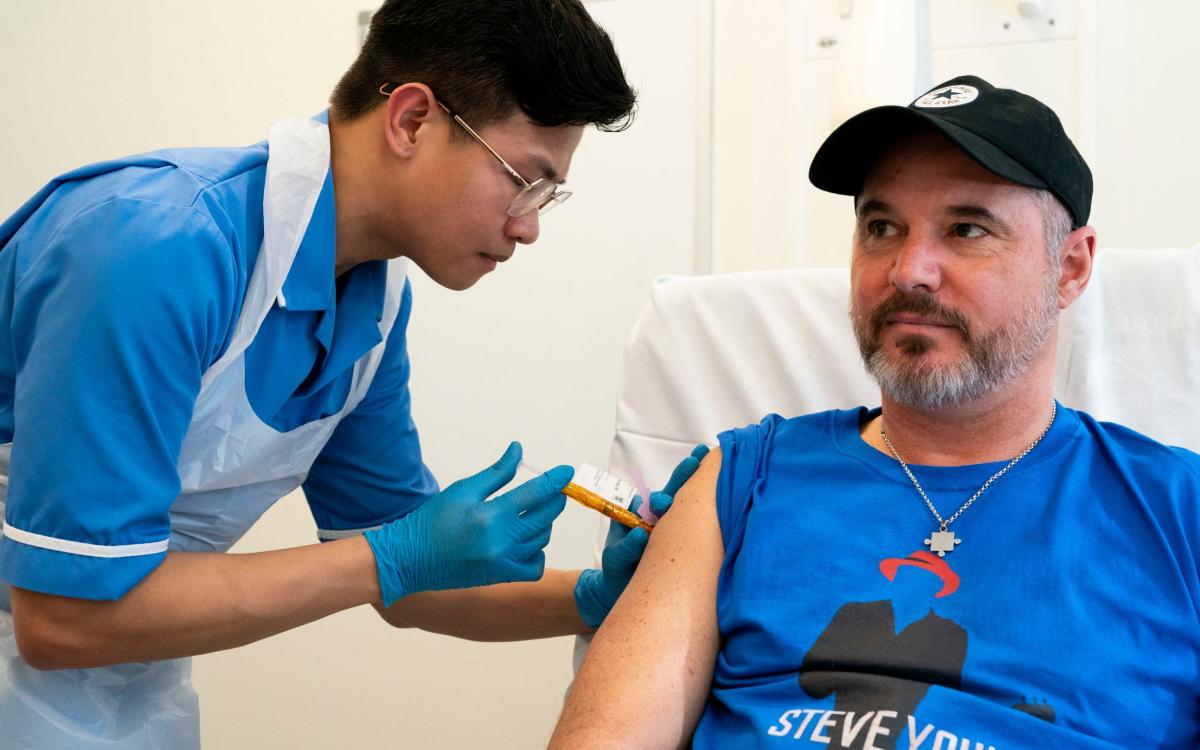-
 News
A real breakthrough in melanoma treatment: a personalized mRNA vaccine trial
News
A real breakthrough in melanoma treatment: a personalized mRNA vaccine trial
-
 Medical articles
CAR T therapy: helps treat cancer when other methods fail
Medical articles
CAR T therapy: helps treat cancer when other methods fail
-
 Medical articles
Cancer incidence is steadily increasing: disappointing WHO forecast for 2050
Medical articles
Cancer incidence is steadily increasing: disappointing WHO forecast for 2050
-
 Medical articles
Stem cells bring hope to millions of people suffering from hearing loss
Medical articles
Stem cells bring hope to millions of people suffering from hearing loss
-
 Medical articles
TOP 10 clinics for oncology treatment 2023
Medical articles
TOP 10 clinics for oncology treatment 2023
All news
Umbilical hernia treatment
An umbilical hernia is a weakening of the abdominal wall muscles in the area of the umbilical ring and the protrusion of the abdominal organs through this place.
The abdominal wall is formed by the straight, transverse, external oblique and internal oblique abdominal muscles. All these muscles converge on the white line of the abdomen-a formation of connective tissue. The white line itself is not completely protected by the muscles, so under the influence of intra-abdominal pressure, it can deform, in which case a hernia occurs. The hole in which the organs can fall out is called a hernial gate, and the protrusion itself is called a hernial sac.
The disease is more common in women over the age of 40.
MedTour patients recommend clinics for the treatment of umbilical hernia:
Doctors for the treatment of umbilical hernia
Frequently Asked Questions
- A lump in the navel area that protrudes in relation to the abdominal wall;
- Increase in the size of the formation when coughing, sneezing, exercise, bending and setting without physical activity back;
- Possible redness in the area of the abdominal wall protrusion;
- Periodic pulling pain in the hernia area;
- Acute pain at the site of a pinched hernia, which is also accompanied by a violation of the function of certain organs of the abdominal cavity.
This is a condition in which the organs located in the hernial sac are squeezed with the occurrence of hypoxia and damage. This condition is accompanied by acute pain, nausea, vomiting, pallor, weakness, lack of stool — the symptoms may vary depending on which organs and vessels are trapped in the narrowed hernial sac. The infringement of the umbilical hernia is considered an emergency surgical situation, in which it is necessary to perform an operation for the excision of the hernia as soon as possible.
Most of the complications are associated with the infringement of the hernia.
- Inflammation of the hernial sac;
- Hypoxia of organs that are located in the hernial sac;
- Hernia infringement;
- Hernia sac rupture;
- Intestinal obstruction;
- Mesenteric thrombosis;
- Intestinal obstruction;
- Peritonitis;
- Premature miscarriages and stillbirths;
- Omission of the abdominal and pelvic organs.
- Thanks to the technical capabilities (da Vinci robot, single port laparoscopic surgery), it is possible to perform an intervention with a minimum incision and a minimum period of hospitalization, which means that pain and adhesive disease are almost completely avoided;
- When planning an operation abroad, the patient undergoes a full examination with computed tomography, if necessary, endoscopy with 3D imaging methods for proper planning of the operation and avoiding surgical complications;
- The approach to surgical patients abroad differs from the attitude to this type of treatment in the CIS — the time of hospitalization after surgery for a planned uncomplicated hernia is less than a day, there are no dietary restrictions and restrictions in terms of motor activity. After surgery, patients often consult a rehabilitologist to reduce the likelihood of a hernia in the future.
What are the current methods of diagnosis and treatment of umbilical hernia
Diagnosis of umbilical hernia
As a rule, for the diagnosis of an umbilical hernia, a visual examination by a surgeon is sufficient.
To plan the operation, ultrasound is also performed to assess the degree of involvement of other organs in the hernia, the presence or absence of adhesions, the location of the hernia in relation to the vessels — so that the operation is predictable and without complications.
In emergency operations, when there was a pinched hernia, sometimes there is a need for X-ray contrast studies or computed tomography.
Treatment of umbilical hernia
In children, in rare cases, an umbilical hernia can be set without surgical intervention with the help of an elastic bandage and physical therapy. In adults, only surgical treatment is possible, which, in turn, is divided into planned and urgent. Planned treatment is usually performed by laparoscopic method. In this case, an incision is made and the anterior abdominal wall is strengthened either by suturing or by applying a special (propylene or silicone) mesh. If necessary, the hernial sac is also reduced and the adhesions are dissected.
Urgent surgery is performed if there is a hernia infringement. In this case, the probability of open surgery is higher, and a combined operation can also be performed to suture the hernia and on the damaged organ at the same time.
Published:
Updated:


Information on this webpage verified by the medical expert




